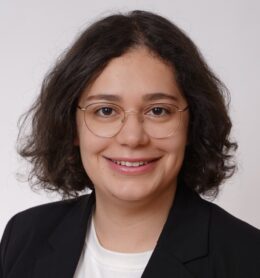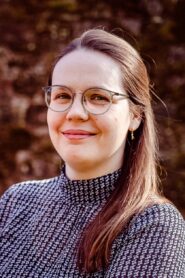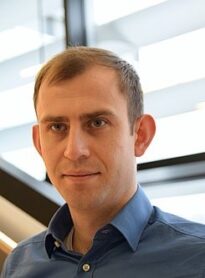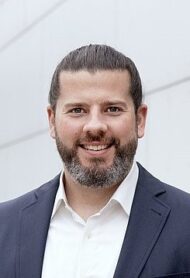Panels and Workshops
GECon 2025
Panel Session:
Women in Engineering
Description: This panel will invite senior professionals to discuss their experiences, impact, career challenges, and ways to evolve in their profession continuously. It will bring together participants from different engineering disciplines and career stages—students, academics, and industry representatives—and offer networking and learning opportunities. A Q&A session will also be included to spark engaging conversations and enable the participants to discuss career obstacles and potential solutions to empowering future engineering leaders.
Pannel chair
 Claudia-Melania Chituc: Senior Software Engineer at Leibniz Institute for Research and Information in Education in Frankfurt am Main. Prior, she was an assistant professor at Eindhoven University of Technology, the Netherlands, and at the Faculty of Engineering of the University of Porto, Portugal, at the Department of Informatics Engineering. She holds a PhD and M.Sc. in Computers and Electrical Engineering from the University of Porto, Portugal, and she pursued two licentiate degrees simultaneously, being a computer engineer and an economist.
Claudia-Melania Chituc: Senior Software Engineer at Leibniz Institute for Research and Information in Education in Frankfurt am Main. Prior, she was an assistant professor at Eindhoven University of Technology, the Netherlands, and at the Faculty of Engineering of the University of Porto, Portugal, at the Department of Informatics Engineering. She holds a PhD and M.Sc. in Computers and Electrical Engineering from the University of Porto, Portugal, and she pursued two licentiate degrees simultaneously, being a computer engineer and an economist.
Workshop Session:
Beyond the Classroom: Explore, Engage, or Found Your IEEE Student Branch
Abstract:
IEEE Student Branches are student-led groups within the IEEE structure that empower students to engage with real-world engineering challenges, collaborate across disciplines, and develop both personal and professional skills beyond the classroom. This workshop introduces the concept of Student Branches, highlights their key benefits, and provides practical guidance on how to start one—including strategies for overcoming common challenges. In the second part, we’ll showcase inspiring student-led projects demonstrating the innovation, initiative, and impact made possible through active involvement in a Student Branch.
Presenters:
 Syrine Ben Abid: Machine Learning Engineering Consultant at T-Systems. She holds two M.Sc. degrees from the Technical University of Darmstadt — one in Electrical Engineering and Information Technology and another in Computer Science. Syrine is currently Chair and founding member of the IEEE Student Branch at TU Darmstadt and previously served as Program Committee Chair of the IEEE Women in Engineering Germany Section.
Syrine Ben Abid: Machine Learning Engineering Consultant at T-Systems. She holds two M.Sc. degrees from the Technical University of Darmstadt — one in Electrical Engineering and Information Technology and another in Computer Science. Syrine is currently Chair and founding member of the IEEE Student Branch at TU Darmstadt and previously served as Program Committee Chair of the IEEE Women in Engineering Germany Section.
 Charlotte Muth (Graduate Student Member, IEEE) received the B.Sc. and M.Sc. degrees in Electrical Engineering and Information Technology in 2019 and 2021, respectively from the Karlsruhe Institute of Technology, Karlsruhe, Germany. She is currently pursuing a Ph.D. at the Communications Engineering Lab at Karlsruhe Institute of Technology. Her research interests include the integration of sensing into communication systems, signal processing, and estimation using trainable algorithms and technologies for wireless communication. Ms. Muth has been part of the executive committee of the IEEE Student Branch at Karlsruhe Institute of Technology since 2022.
Charlotte Muth (Graduate Student Member, IEEE) received the B.Sc. and M.Sc. degrees in Electrical Engineering and Information Technology in 2019 and 2021, respectively from the Karlsruhe Institute of Technology, Karlsruhe, Germany. She is currently pursuing a Ph.D. at the Communications Engineering Lab at Karlsruhe Institute of Technology. Her research interests include the integration of sensing into communication systems, signal processing, and estimation using trainable algorithms and technologies for wireless communication. Ms. Muth has been part of the executive committee of the IEEE Student Branch at Karlsruhe Institute of Technology since 2022.
Workshop Session:
KICK 4.0 – AI Chatting Skills in the Engineering Laboratory
Abstract:
Cross-reality labs (XR labs), which integrate digital media and VR, are increasingly being incorporated into undergraduate STEM education. These labs can help students develop subject-related, interdisciplinary, collaborative, self-directed, and agile learning skills, if well developed. The project Kick 4.0 – AI Chatting Skills in the Engineering Laboratory builds on this by introducing new competencies needed for AI-based systems like ChatGPT. The project’s goal is firstly to help students understand the opportunities and limitations of human-AI collaboration and secondly to develop relevant competencies for learning and working. To this end, pedagogical scenarios for real-world problem solving are developed for fluid mechanics labs, where students use AI for research assignments. This approach aims to equip students with essential AI skills for society and the workforce in a reflective and critical manner.
Workshop Outline:
The workshop aims to engage with interested educators from the global engineering education community, fostering an exchange of ideas and developing initial steps towards collaborative solutions. The workshop is divided into 3 parts:
- In the first part, the project is briefly presented, i.e. the initial organizational situation and the basic theoretical and pedagogical assumptions.
- In the second part, there will be a group work phase where participants, in small groups, will identify pedagogical, organizational, and technical challenges, opportunities, and limitations. These will then be discussed collectively in the plenary session.
- In the third part, initial frameworks and guidelines for the effective use of generative AI in engineering labs will be developed.
Presenters:
 Johannes Kubasch is a mechanical engineer and research associate at the Chair of Technical and Engineering Education at the University of Wuppertal. As a engineer in automotive engineering, he initially worked in the automotive supply industry in the development of airbag systems before moving to the University of Wuppertal to work in the field of engineering education. In the past, he worked on the AdeLeBk.nrw project to digitize the university training of prospective teachers at vocational schools and to adapt the learning content to the requirements of later professional practice.
Johannes Kubasch is a mechanical engineer and research associate at the Chair of Technical and Engineering Education at the University of Wuppertal. As a engineer in automotive engineering, he initially worked in the automotive supply industry in the development of airbag systems before moving to the University of Wuppertal to work in the field of engineering education. In the past, he worked on the AdeLeBk.nrw project to digitize the university training of prospective teachers at vocational schools and to adapt the learning content to the requirements of later professional practice.
 Dominik May is a university professor for technical and engineering education at the Faculty of Mechanical Engineering and Safety Engineering at the University of Wuppertal in Germany. He investigates how technical and engineering concepts can be taught most effectively in order to promote students’ understanding, skills and competences. His scientific fokus includes the pedagogical aspects and the technical content. His work contributes to the creation of an evidence-based foundation that pursues the goal of continuous transformation and innovation in technical and engineering education.
Dominik May is a university professor for technical and engineering education at the Faculty of Mechanical Engineering and Safety Engineering at the University of Wuppertal in Germany. He investigates how technical and engineering concepts can be taught most effectively in order to promote students’ understanding, skills and competences. His scientific fokus includes the pedagogical aspects and the technical content. His work contributes to the creation of an evidence-based foundation that pursues the goal of continuous transformation and innovation in technical and engineering education.

